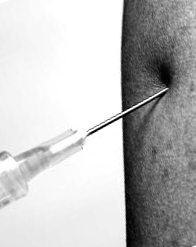Workers fight jab rules
 A group of Queensland frontline workers including police officers and paramedics are challenging their COVID-19 vaccine mandates.
A group of Queensland frontline workers including police officers and paramedics are challenging their COVID-19 vaccine mandates.
More than 70 Queensland Police Service (QPS) and Queensland Ambulance Service (QAS) staff who refused to comply with the vaccine directives are testing the legality of the policies in the Supreme Court.
Queensland healthcare workers needed to have two doses of the vaccine by December last year, while the QPS had a staff deadline to be fully vaccinated by January — unless an approved exemption was granted for medical and religious reasons.
The QAS mandate was designed to reduce the risk to patients and the broader community, based on findings that COVID-19 "disproportionately [affects] healthcare workers".
The QPS said its mandate was imposed for similar public health reasons, given that police work requires officers to interact with large numbers of people across the state.
In the first of several civil cases, complainants argue that the requirements are unjust or an improper exercise of power.
They claim that similar directions made by Queensland’s Chief Health Officer last year breached human rights laws, though that matter is to be heard at a later date alongside other similar legal challenges.
Dr Christopher Ward, who represents the group of QAS staff, made a submission to the court that said the workers were “singled out” by the policy, especially after mandates were lifted in other industries.
He also argued that the required vaccines had "no measure of effect" on reducing transmissibility of the COVID-19 Omicron variant.
“Restrictions on liberties for the overwhelming majority of the Queensland population have been relaxed,” he said.
“Yet this small group of employees remain subject to what we say was… unjustified interference on their liberties and employment.
“It could not be said in our submission either today nor in January '22 that the virus disproportionately affected healthcare workers including paramedics in any sense of the word disproportionately.”
Dr Ward said some of his clients had made exemption applications but are still waiting for a decision.
“The exemptions on face value appear to address some of the legitimate concerns of this policy, but in practice they have been utterly ineffective,” Dr Ward told the court.
“The exemptions are not worth the paper they're written on.”
Dan O'Gorman argued on behalf of a group of QPS staff that the Queensland Police Commissioner's directive was an “impractical compulsion” that was effectively asking his clients to “commit a criminal act”.
“They're required to sign a statutory form saying that you give full and free permission to undertake the medical treatment,” he said.
“They couldn't say to the doctor that they give their free consent… They would have to lie.”
The trial is set down for five days and should hear evidence from infectious disease experts, Police Commissioner Katarina Carroll and other witnesses.








 Print
Print